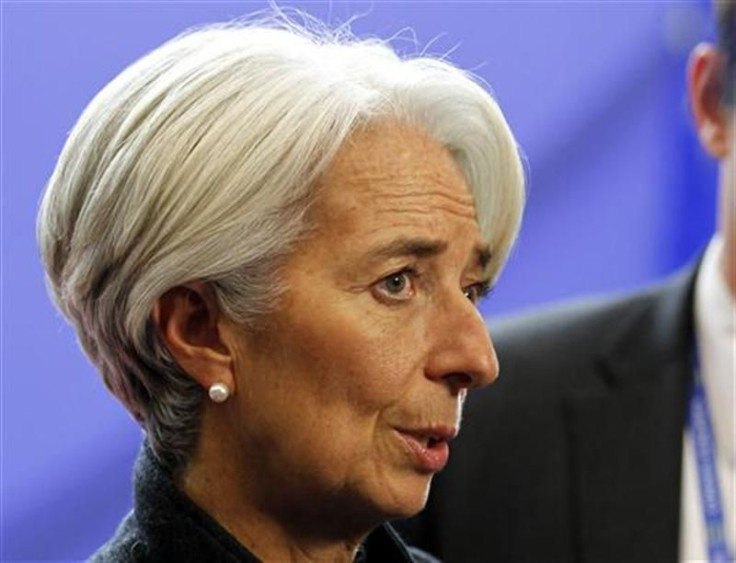Eurozone Firewall: UK, Singapore, South Korea And Australia Contribute $41 Billion To IMF

Australia, Singapore, South Korea and the UK have agreed to contribute a combined $41 billion to the International Monetary Fund reserve to boost a global firewall against Europe's debt crisis.
The IMF plays an essential role in supporting stability in the global economy, from which we all benefit, the four countries said in a joint statement.
Australia will contribute $7 billion, Singapore $4 billion, South Korea $15 billion and the UK $15 billion, according to the statement. This will be by way of contingent loans or note purchase agreements, the statement added. These resources will increase the lending capacity of the IMF and enable it to play its systemic role for the benefit of all members, it continued.
South Korea's decision this time to participate in the expansion of the IMF's financial resources is very meaningful in that a country, which received bailout funds during the 1997 Asia-wide financial crisis, has become a key player in resolving a global crisis, the Ministry of Strategy and Finance of South Korea said in a press release.
Jobs and growth in Britain depend on stable world economy. That needs a strong IMF. And because we have taken strong action to rescue our own economy, we can be one of many countries that can support the IMF, instead of being bailed out by the IMF, George Osborne, the Chancellor of the Exchequer of the UK, said.
Last week, Lagarde said she would pare down the request for $600 billion of additional resources as threats to the global economy diminished. At the same time, she added that a stronger global firewall would help complete the circle of protection for every country. The IMF hoped to obtain at least $400 billion from around the world, she said.
While Eurozone nations agreed to contribute 150 billion euros ($200 billion), the US, IMF's largest shareholder, hasn't yet expressed its willingness to contribute. Lagarde said she hoped Washington would change its stance as the US would be hurt if the European crisis worsened. Meanwhile, the US Treasury Secretary Timothy Geithner said that the country was supportive of the fund raising process.
Emerging economies like Brazil and Mexico have said they are ready to participate. Though China has not made any commitment so far, it is expected that Beijing is moving in the same direction as Japan.
© Copyright IBTimes 2025. All rights reserved.





















